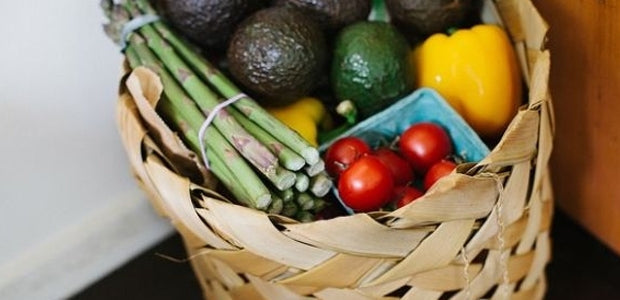Reducing packaging waste
Packaging accounts for over 5 million tonnes of waste every year in Canada. In France, more than a third of the 500 kg of waste produced on average per household per year is related to packaging. That's three times more than 25 years ago. In short, there's an urgent need to act! Here are a host of tips to help you store greener!
Ecolo 101: Avoid over-packaging
Opt for large formats rather than individual ones. For example, choose large yoghurt pots rather than individual trays. At home, you can then transfer them to reusable containers as needed. (Plus, it's economical!).
In the fruit and veg department, leave out the packaged broccoli and eggplants. What's the point? Vegetables can be placed directly in the basket. Buy fruit and vegetables in bulk rather than in over-packed packages. Choose whole fruits and vegetables that you can portion at home. Not only are they less expensive than store-prepared sliced produce, they also generally require no packaging.
Another example: if you want to buy shrimps, for example, choose them at the counter. In addition to getting precisely the quantity you want, you avoid packaging such as plastic-covered Styrofoam trays wrapped in plastic film.
In the bakery department, many muffins and cakes are wrapped in very thin, transparent plastic, which is not recyclable in Quebec. Ask for your muffins directly at the counter, so they can be placed in a paper bag.
Choose glass rather than plastic containers. Glass is easily recyclable, whereas plastic is a by-product of the petrochemical industry, and some types of plastic are difficult to recycle.
In short, the best waste is definitely the waste we don't produce!
If more and more consumers were to buy less-packaged products, perhaps the industry and the managers of supermarkets would react and offer their customers products in line with their environmental convictions.
Other tips for a greener grocery store
Ask to stop receiving paper flyers and consult online flyers.
Shop by foot, bike or public transit. If necessary, go to smaller grocery stores more often to avoid heavy bags.
A plastic bag can take over 400 years to decompose... Don't forget your reusable bags!
Opt for local products to encourage Quebec's terroir and reduce the pollution associated with transporting food.
Buy certified organic foods, which are produced using methods that respect the environment. However, avoid organic products that come from far away, as they have a high environmental impact due to transportation!
Avoid endangered fish species (e.g. Chilean sea bass, Atlantic cod, etc.).
Avoid buying bottled water, which wastes plastic and often comes from far away. If you need to, opt for large, shareable bottles rather than individual ones.


